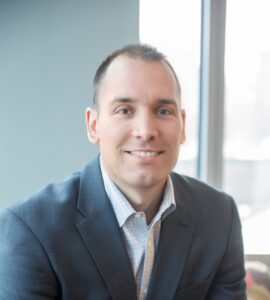My Dad Suffered from Kidney Failure
Author : Farhad ModaraiDecades later, I’m in the trenches of challenging the status quo of how we care for patients with kidney disease.
Sunday is Father’s Day. The best way I can pay homage to my father is to call attention to his complex chronic health journey, which played a monumental role in my decision to pursue medicine. My father’s journey led me to my current position at Strive Health, a tech-enabled kidney care management company challenging the status quo. More about Strive down the line, but for now, some background on how I got here.

Looking back, my passion for healthcare definitely had its roots in my childhood.
My dad developed advanced kidney disease in his late 20s, and ultimately transitioned to end stage kidney disease and required dialysis by his early 30s.
When I was a kid, his hemodialysis machine became a permanent fixture in our home, taking up half our living room. My sister and I grew accustomed to the sight. It became our “normal,” with him going on a dialysis machine three to four times a week.
By the age of eight, I was often helping cannulate his fistula — or insert dialysis needles — and my dad loved us being involved. When we were younger, he would go on his machine, finish a session and then join my sister and I outside to play. It amazes me now to think about how both remarkable and unremarkable that was.
After enduring home hemodialysis for over 25 years, he transitioned to a different modality — peritoneal dialysis — for his final eight years of living. He passed away at the age of 67 unexpectedly during my third year of medical school.

As I reflect on what led to his death, I have painfully come to the conclusion that it was probably avoidable.
I look back at my father’s journey in awe. I’m amazed that he lived without kidneys for more than half of his existence, his blood being filtered on a regular basis. But then, inevitably, our bodies age and more complications arise and we are confronted with secondary clinical complications from long-standing kidney disease.
As my dad grew older, more hospitalizations occurred and more complications happened. We had to take him to more and more doctors and tracking everything he needed on a daily basis only grew more complex. We also didn’t have the privilege of knowing how to navigate the system from the inside.

For better or worse, now that I have a clearer understanding of our health systems failings, I can look back and pinpoint certain things, like a medication that was started but wasn’t communicated clearly or monitored effectively, which led to avoidable complications. This is just one of many examples.
To be clear, I still do and always will put his providers, nephrologist and primary care physician on a pedestal because they went out of their way to do the best that they could. The deck was stacked against them though. They were working in a very fragmented, episodic, reactive system which was not set up to help patients like my father.
The moment a patient’s illness gets more complex, the more chronic issues you have to manage, you start to see where the system breaks down and doesn’t serve the patient’s needs adequately, if at all.
My father passed away and this was the first time I really felt anguish. He wasn’t just my father, he was a friend I really enjoyed being with.
I persevered and I eventually became a physician, but I knew I couldn’t just practice in the same kind of healthcare environment I had been exposed to both as a caregiver and in my clinical training. I feel fortunate to have come up in an era of healthcare reform, starting with the passage of the Affordable Care Act in 2010, that really enabled healthcare systems and leaders to begin to rethink how care can be delivered in the U.S. to shift from a reactive fee for service system to a more proactive value-based care one.
I have been fortunate to be in positions — at places like CareMore Health and Duke University Health System — that allow me to be intentional around how we design and deliver care for medically and socially complex patient populations. It thrills me to see that over a decade later, new meaningful healthcare reform efforts are making their way into specialties like nephrology. Now, I’m in the trenches of value-based kidney care management with Strive Health, and this allows me, and many other Strivers, to pursue this work for deeply personal motives.
Our mission at Strive is to look at this puzzle in front of us, fragmented though it may be for such a high-risk population, and put the pieces together in such a way that we can deliver improved quality and access to care for these patients at the right place and the right time.
By nature, kidney patients have clinical, social and behavioral health complexities. We have a data-driven clinical care model that really wraps around our patients in a meaningful way. We have made investments in things like our data science models that have more than 100 different inputs to provide our teams with an accurate picture of what’s going on with each and every patient. It helps us understand how likely and quickly they are to progress in their kidney disease journey and identify care gaps to stabilize acute and chronic conditions. I can’t help but wonder if maybe our model of care could have helped my dad.
Father’s Day is a humbling reminder of why I’m on this path.
I think if he could see me today, he’d be proud of the fact that I’m using all the resources at my disposal to improve care for those suffering from the advanced stages of kidney disease. I don’t do it just for the person with kidney disease. I do it for their family members and loved ones, who become their support system and caregivers over time.
Dr. Farhad Modarai is the Senior Vice President of Product Management for Strive Health. He is part of the care model team and oversees the development and growth of value-based care for patients with kidney disease. Dr. Modarai’s professional experiences span various healthcare settings including government, academia and community. Before joining Strive Health, he served as an Associate Regional Medical Officer at CareMore Health, Primary Care Physician at Duke University Health System and Epidemiology Fellow for the CDC. Dr. Modarai earned his Doctorate degree from the University of Medicine and Dentistry of New Jersey and has served on numerous boards including the American College of Preventative Medicine and the North Carolina Academy of Family Physicians.








